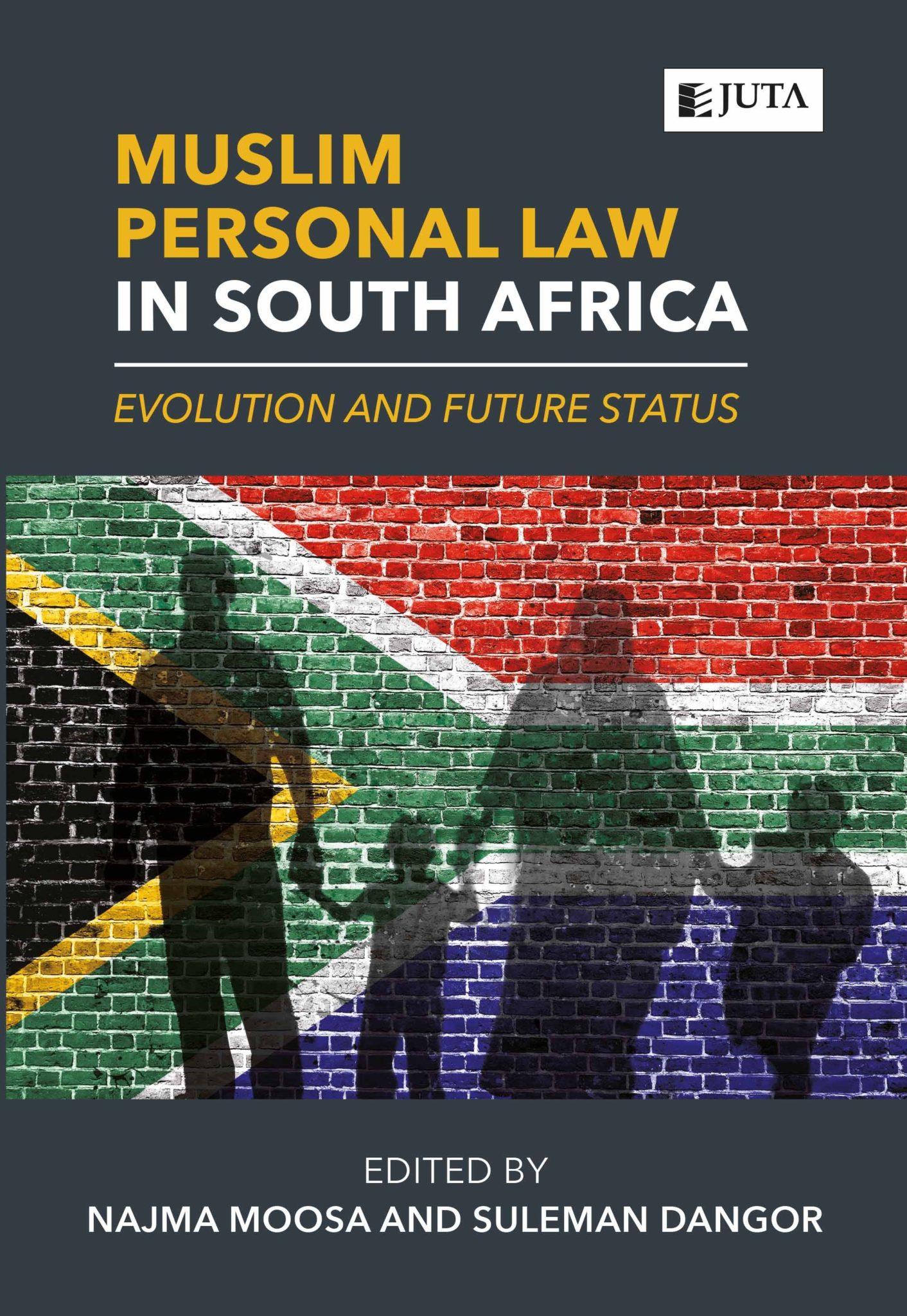Muslim Personal Law in South Africa: Evolution and future status

11 Mar 2019
About this publication:
Muslim Personal Law in South Africa: Evolution and Future Status, the first South African book on the topic of Muslim personal law, introduces readers to the debate on the awarding of unique rights to specific communities. The recognition of Muslim personal law or Muslim family law has provoked debate within and beyond the Muslim community and has attracted the attention of religious scholars, academics and lawyers.
The contributors to this volume touch on constitutional issues, concerns with the application of Muslim personal law by our courts, and the conflict between supporters and opponents of the draft Bill on Muslim Marriages. The non-recognition of Muslim marriages has compelled Muslim women who have suffered the dire consequences of divorce, maintenance and custody to approach the courts for relief.
If Muslim personal law were to be recognised by the state, to what extent would it protect the rights of women? Will recent judgments establish precedents that might prove to be at odds with the draft Bill? This book provides fascinating insight into the evolution and prospects of Muslim personal law in South Africa.
Contents include:
- Chapter 1: An introduction to Muslim personal law in South Africa: Past to present – Najma Moosa and Suleman Dangor
- Chapter 2: A legal and historical excursus of Muslim personal law in the colonial Cape, South Africa, from the eighteenth to the twentieth century – Shouket Allie
- Chapter 3: Muslim personal law—an update – Mahomed Solomon Navsa
- Chapter 4: The debate regarding Muslim personal law in South Africa: Achieving a balancing of interests – Yousuf Dadoo and Fawzia Cassim
- Chapter 5: Citizenship, Muslim family law and a future South African Constitution: A preliminary enquiry – Firoz Cachalia
- Chapter 6: The gendered benefits and costs of legal pluralism for Muslim family law in South Africa – Waheeda Amien
- Chapter 7: Muslim family law in South Africa: Paradoxes and ironies – Ebrahim Moosa
- Chapter 8: The struggle over Muslim personal law in a rights-based Constitution: A South African case study – Abdulkader Tayob
- Chapter 9: The contribution of the courts in the integration of Muslim law into the mixed fabric of South African law – Christa Rautenbach
- Chapter 10: A marriage of laws: The recognition of Islamic marriages through our courts – Charlene May and Seehaam Samaai
- Chapter 11: Determining the application of a system of Muslim personal law in South Africa – Fatima Seedat
- Chapter 12: Implications of the official designation of Muslim clergy as authorised civil marriage officers for Muslim polygynous, interfaith and same-sex marriages in South Africa – Najma Moosa and Muneer Abduroaf
- Chapter 13: The Muslim Marriages Bill: A legal quagmire – Mohammed Allie Moosagie
- Chapter 14: The Majlis and the Muslim Marriages Bill: A dissection – Suleman Dangor
- Chapter 15: South African engagement with Muslim personal law: The Women’s Legal Centre, Cape Town and women in Muslim marriages – Hoodah Abrahams-Fayker
- Chapter 16: The recognition of Muslim marriages in South Africa: Implications for women’s human rights – Rashida Manjoo
- Chapter 17: Equal rights and recognition: Extending the protection in the Wills Act to Women in Polygynous Muslim Marriages – Seehaam Samaai, Charlene May and Harsha Gihwala
- Chapter 18: Muslim personal law in South Africa and women’s religious rights and freedoms – Wesahl Domingo
- Chapter 19: Faskh (divorce) and intestate succession in Islamic and South African law: Impact of the watershed judgment in Hassam v Jacobs and the Muslim Marriages Bill – Najma Moosa and Muneer Abduroaf
- Chapter 20: New trend of legal transplant to triple talaq: Lessons for South Africa – Faizal Ahmad Manjoo
- Chapter 21: Arbitration and mediation as an alternative paradigm for the recognition of faith-based personal law – Ziyad Motala
- Chapter 22: Proprietary consequences of Muslim marriages and contractual capacity of spouses – Muhamed Fazel Bulbulia
- Chapter 23: Muslim Marriages Bill—Mapping the ongoing socio-ethico-legal challenges facing South African women – Essa Moosa
- Chapter 24: Muslim Marriages Bill impasse—an interim way forward – Abdul Karim Toffar
- Chapter 25: Conclusion – Najma Moosa and Suleman Dangor
Of interest and benefit to:
- Academics and students with an interest in Muslim personal law
- Muslim religious leaders
- Members of the Muslim religious community
Muslim Personal Law in South Africa: Evolution and future status
Edition: 1st
Available: Approximately 15 March 2019
Editors: Najma Noosa and Suleman Dangor
ISBN: 978 1 48512 716 1
Format: Print (soft cover)
Extent: 484 pages
Retail price: R695
(Price incl. 15% VAT and is valid until 30 June 2019. Excludes
courier delivery.)
See also: Section pertaining to “surviving spouse” in Wills Act declared unconstitutional
(This article is provided for informational purposes only and not for the purpose of providing legal advice. For more information on the topic, please contact the author/s or the relevant provider.)

